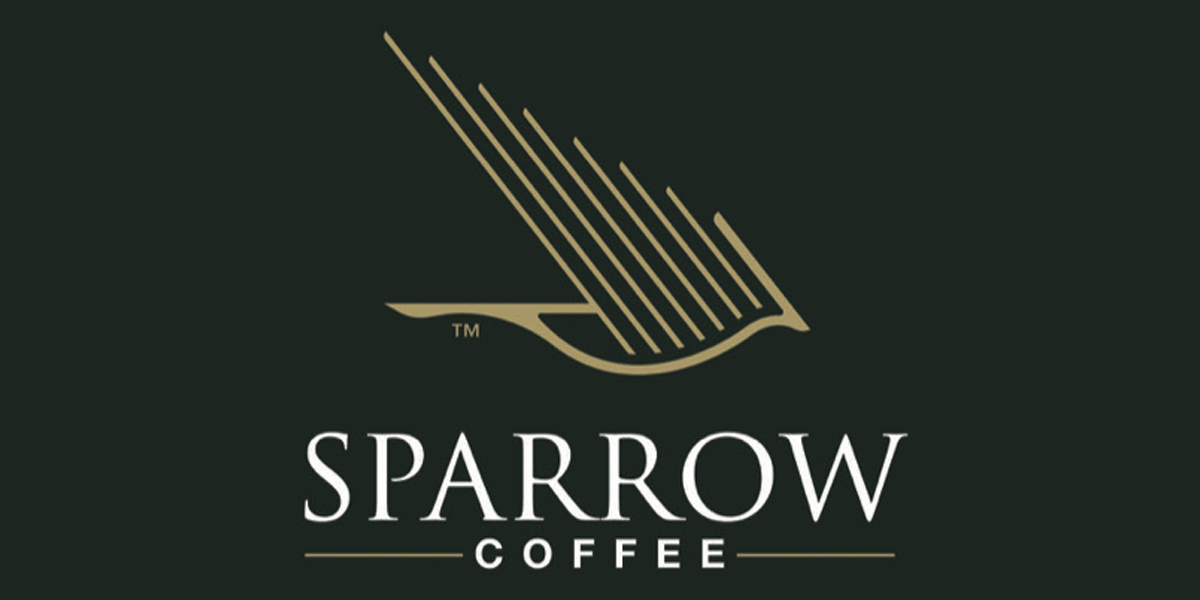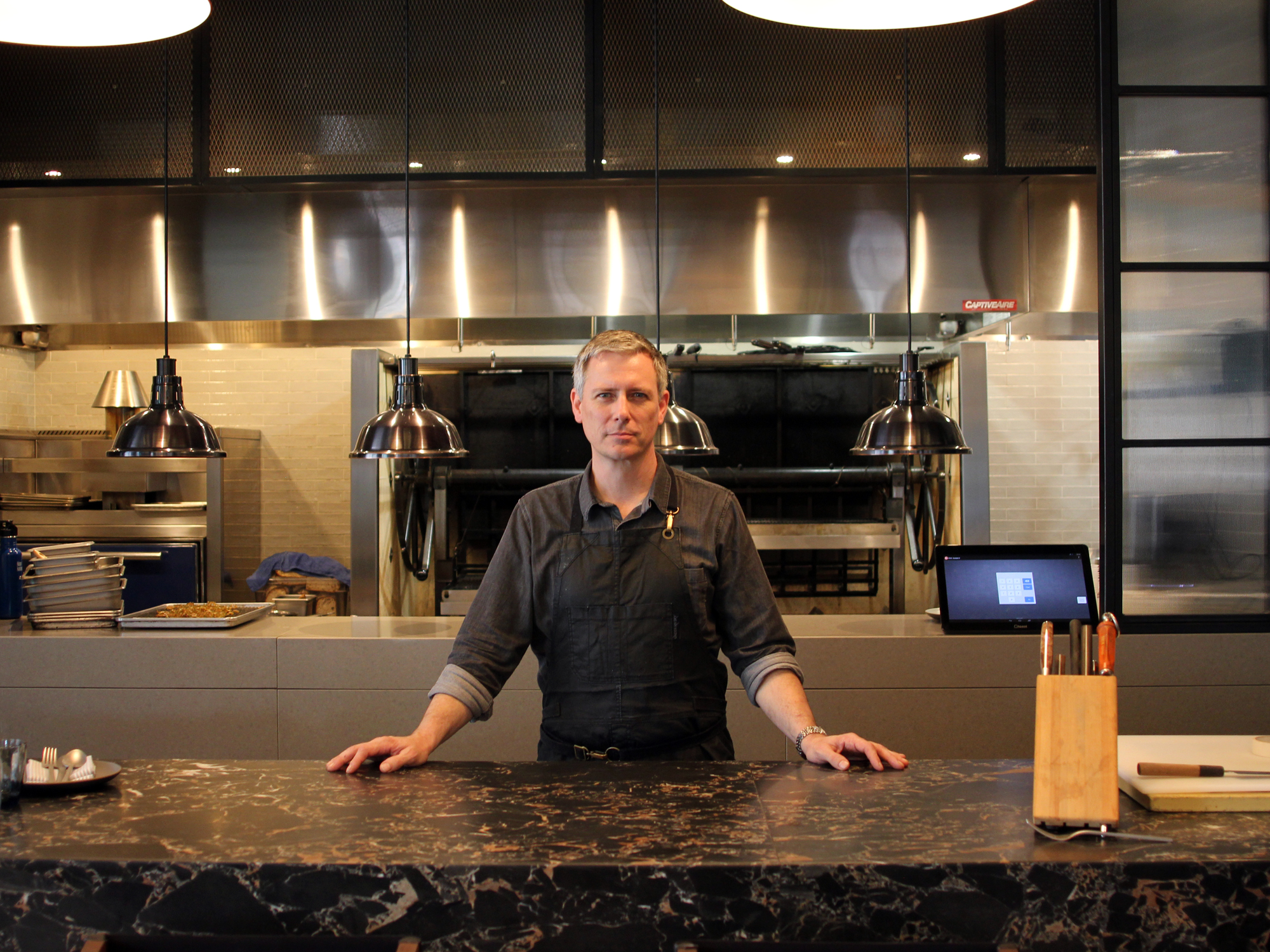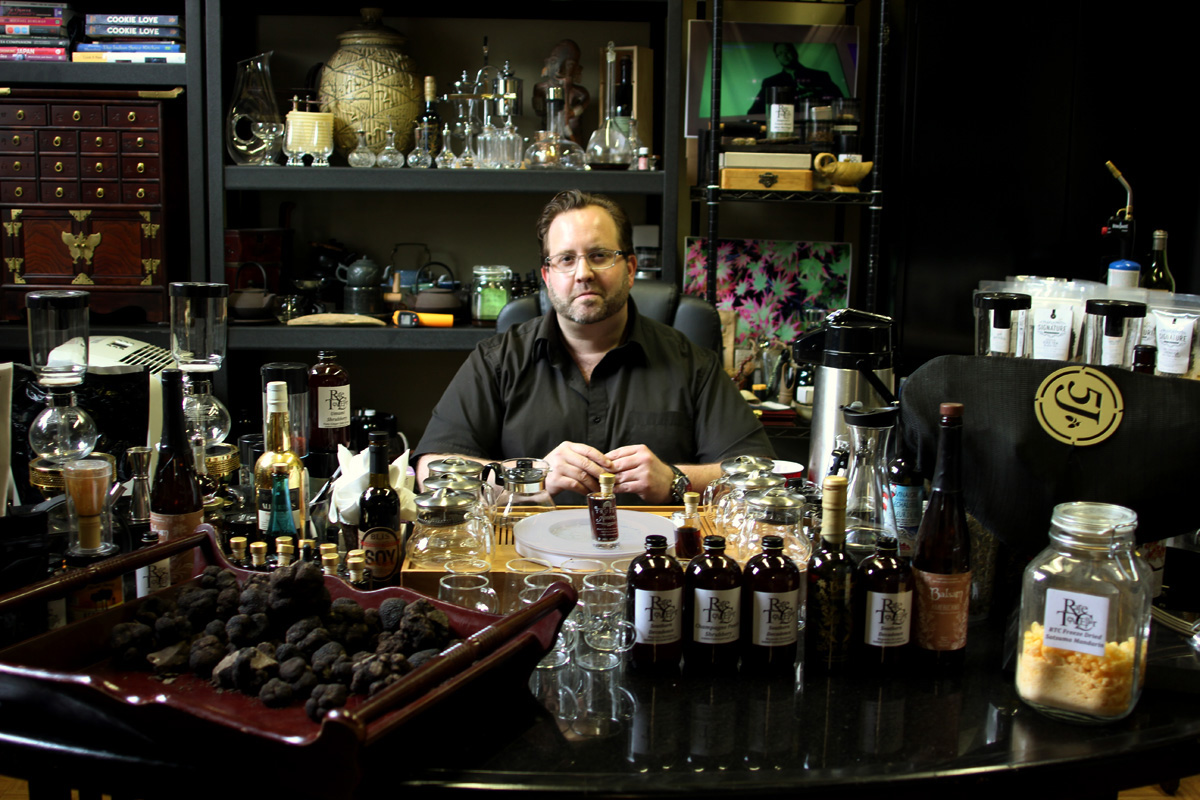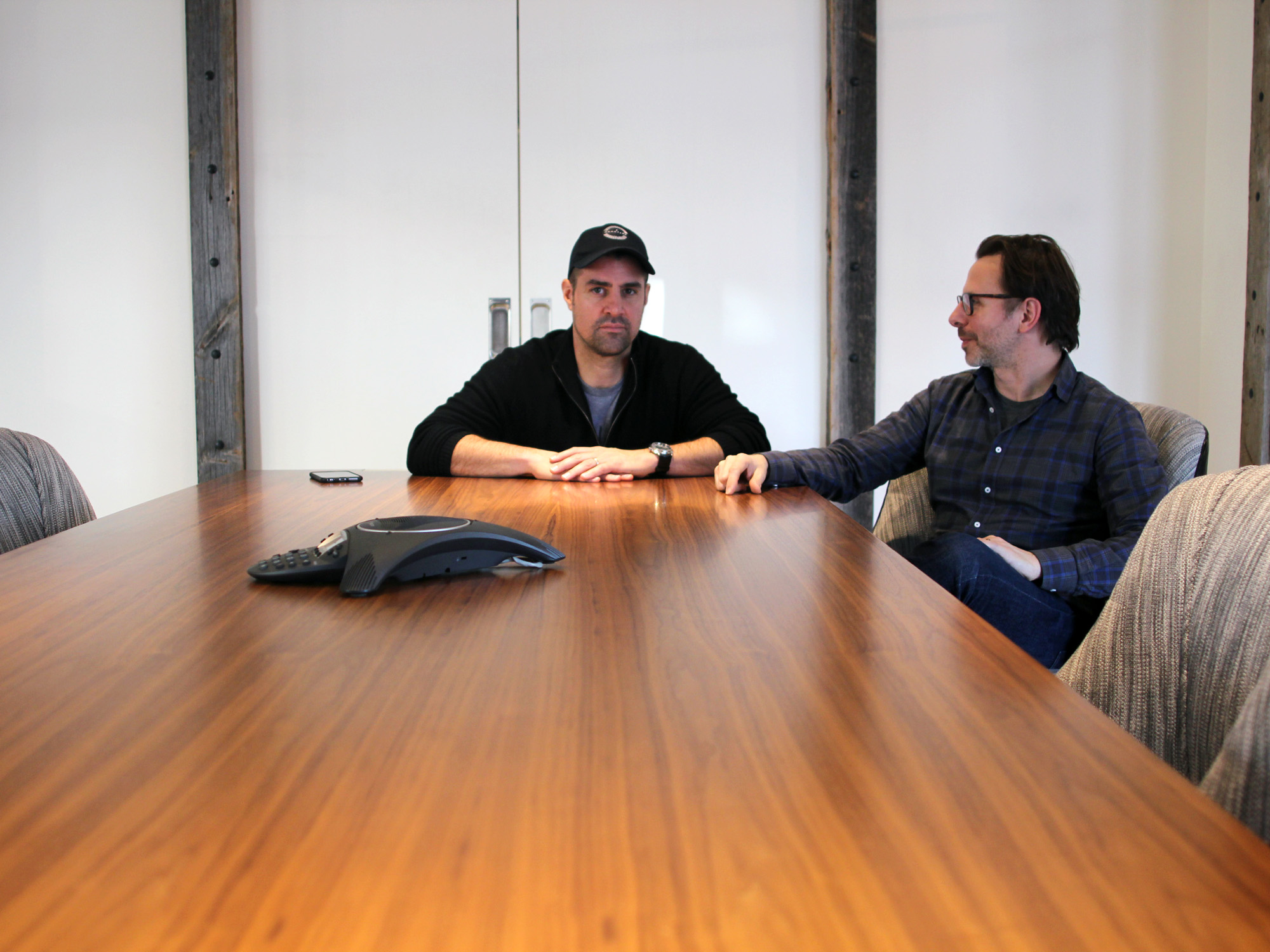JOE FRILLMAN’S DAISIES, IN THE LOGAN SQUARE space that formerly held Analogue, isn’t exactly the highest profile opening of the year, next to shinier, more expensive things.
But to me it might just belong in the category of neighborhood places that in time come to define their neighborhoods through the sincerity and pleasure of their approach to food. Like Giant, or Elske, or one of the places where Frillman learned his craft, The Bristol. In some ways it’s less about the food (which in any case I’ve only noshed on at a preview event, so food’s not my primary reason for saying this) than about the feeling the place gives off. About where it will be in a year from now, or three years from now.
Part of it comes from how deeply this restaurant is a family affair for Frillman. One of his brothers is growing vegetables for the restaurant on some land the family owns in Buffalo Grove; his sister did the artwork for the restaurant, and his mom does the flower arrangements in the patio. And it was another brother’s illness that seemed to fix his determination to take some time off, and come back to do exactly the restaurant he wanted to do, where he could grow with the restaurant himself. (By the way, speaking of family, his wife had their first child just weeks before the restaurant became their other new baby.)
I went to interview Frillman about what he was cooking but he was, as new restaurant owners tend to be, a bit preoccupied with the million details of running a place—on that day, the fact that a malfunction with the (brand new, expensive) dishwasher was warping the floorboards. And anyway, it’s hard to talk about the food you plan to make. Instead, what got him animated was talking about the places where he had worked, or in one case just visited, and what he got from them. So instead of doing the standard interview, I decided to focus on the experiences that brought Frillman from being a teenager half goofing off in a kitchen, a decade and a half ago, to an owner and chef today.
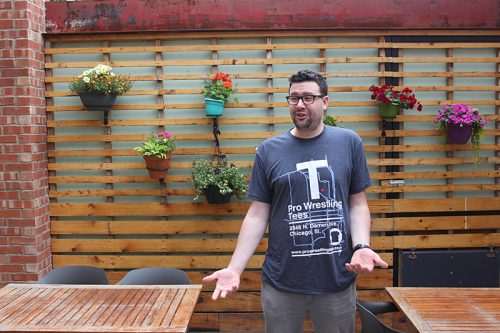
Here, in Frillman’s words, are seven places he passed through—in Chicago, on the north shore where he grew up, and in one case, halfway around the world. These are the stories of how they shaped him as a young cook, and brought him to a new Chicago restaurant, Daisies.
Rita Pia’s, Mundelein
In 2004, I helped open a friend’s pizzeria in Mundelein. I’d been working in restaurants as a bar back, as a bus boy, as a dishwasher, you name it. Started at the Cubby Bear as a food runner. And I really liked, loved, the kitchen aspect of everything—people swearing, talking shit to everybody. It was intriguing to me for some reason.
I grew up in a family, my mom was always cooking, my grandma, she passed away when I was 11 but she had a huge influence on me, because there was always food around. I basically got really interested in watching Julia Child, The Frugal Gourmet—we didn’t have cable so it was PBS every day after I came home from school. Yan Can Cook. I loved it, I was like, this is amazing.
My mom would cook and I would pay attention. My dad made a great grilled cheese sandwich when I was seven—I’d always had grilled cheese sandwiches but for the first time there was tomatoes on it. And it was the first time I realized, you can take the same thing, kind of, and get a different outcome just by adding certain ingredients.
So my parents were like, you should go to culinary school and of course I didn’t, I studied architectural engineering. Hated it. So boring.
Left Northern Michigan after I drank way too much, didn’t know what I wanted to do. I started working valet, which is also customer interaction, hospitality, making sure people are taken care of. I really liked that aspect of things. I got involved with a friend, who’s the son of the Fontanini meat packing family, he opened a pizza place in Mundelein called Rita Pia’s. I did everything, I ran catering for him, I got paid in pizza. To this day, the best pizza I ever had.
So then I went to culinary school. The valet guy thought I was nuts, because I was managing accounts at 23. He said, you’re running accounts, you’re literally moving up—and hindsight, I probably would have made way more money if I’d stayed with it. But I just really wanted to be a cook, so I enrolled at the Illinois Institute of Art.
And I met the right people. Culinary school, you get out what you put in. If you’re not going to put in the time and effort, it’s like any school. I found something that I really enjoyed, and I met the right people—Michael Howe was basically my 101 teacher, and this dude just whipped me so hard, but for some reason I liked it. The discipline.
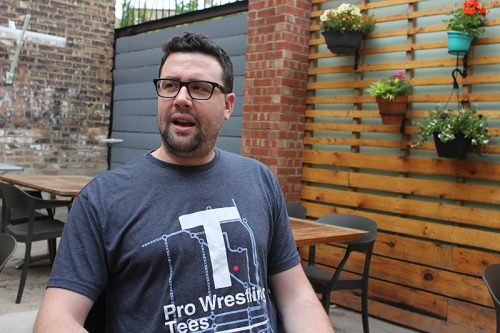
Osteria di Tramonto, Wheeling
I took a job, while I was in culinary school. I looked everywhere for a job, no one would hire me. Because I had no experience in the kitchen. “Yeah, we understand you’re going to school, but we don’t care.” I sent letters to restaurants, nobody took me.
Rick Tramonto was opening up Osteria di Tramonto in a hotel in Wheeling. A steak house, an osteria, a sushi lounge, Gale Gand’s pastry place. I got a job there, and that’s where I met Chris Pandel.
He was the corporate executive chef of all four. And the staff there was just unbelievably talented, because everyone came from Tru. Rick basically robbed Tru, brought over all the sous chefs. Greg Biggers, who runs the Sofitel, Chris Eley who runs Smoking Goose in Indiana, Sam Berman who’s opening up the new thing [Marisol] with Jason Hammel at the Museum of Contemporary Art, Michael Ponzio, he now runs Medinah Country Club, Jared Van Camp who runs Nellcote was one of the sous chefs there, just came from Blackbird, and then Stuart Davis, he’s a kitchen designer for Next Step Design, who did the kitchen for Swift & Sons. Super talented people.
After I got back from The Fat Duck, I started tugging on Pandel’s sleeve. He was 9 to 5-ing it at that point, corporate executive chef, he made sure everything went well, but he was bored. So I got to know him. At that time, you’d show up at 5:00 and work a station that was already set up for you, because there was breakfast, lunch and dinner. And I thought, this is great, but I need to know how to prep this stuff myself.
So every day, he’d be like, hey, if you want to learn stuff, come here tomorrow at 11:30 am, and I’ll show you whatever you want. Butchering salmon, and breaking down lobsters, and cooking mushrooms, you name it. And then afterwards, Jared came in and they went out to a farm, Chris and I think Ponzio, and they shot a pig and they brought it back and said, we’re going to make charcuterie. That wasn’t going on at all, then, not here.
The Fat Duck, Bray, Berkshire, England
Halfway through my time at Osteria di Tramonto, I sent a letter to The Fat Duck, because I’d been reading about it. I don’t even know why—I wanted to see what the number one restaurant in the world, at that time, was like. I think they were number two, right when I got there. They’d been number one, so they all laughed and said, you’re why we’re number two now [laughs].
I sent them a message—I want to come stage! I had no idea what I was getting myself into. I had no experience in a fine dining kitchen—Osteria was great, phenomenal talent in the kitchen, the food was awesome, but it was a 200-seat restaurant in the suburbs that just cranked.
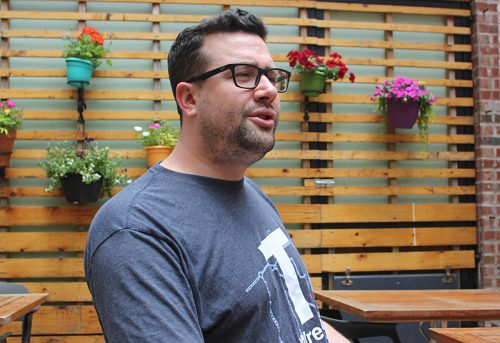
There were like 40 stages. It was fucking insane. But it taught me a lot about discipline, about what it takes to get to that level. It takes 40 stages that you’re not paying! [laughs] You’d get to work at 7:30 in the morning, you’d go home at 1:30 in the morning. The place I was staying at, they gave me their daughter’s bike, so it was literally like a 6’5″ dude riding this girls’ bike in November, it was completely dark out, no street lights both ways. The town, Bray, is like 500 people.
I got to meet people from all over the world. From Argentina, to South Africa, to Japan. Some spoke English, some didn’t. And you just basically immersed yourself in the work on a daily basis. And the attention to detail, the discipline… I’m a smartass, so they had to break that down. There were days that I was picking up cigarette butts, one by one, because I fuckin’ said something I shouldn’t have. So it taught me to… kind of rein that in a little bit? Respect the individuals, respect the traditions.
It whipped the shit out of us. It really did. We weren’t doing technical things outside of mass production, other than picking parsley and brunoising all day long. But it taught you the knife skills, it taught you those things. And at that time, people weren’t doing that kind of food anywhere. In 2005, 2006, nobody was doing that kind of food outside of a handful of restaurants in the world. Now, with Instagram and all of that stuff, anybody does it.
The Fat Duck taught me a lot about discipline, about what it takes to get to that level. It takes 40 stages that you’re not paying!
It was the first time I ever saw a circulator, sous vide. I’d never seen that before. At that time, people didn’t find out about other peoples’ restaurants unless another cook went there and brought back a menu and we could talk about it and figure it out. I miss that, it was fun. Now it’s just information overload. Which is good and bad; we have a wealth of knowledge, the food is exponentially better in this country, and that’s part of it. But at the same time, there was something kind of cool about that.
When I came back, I came back to Osteria for a little bit, and Rick Tramonto—he was there, but it wasn’t one of those situations where he was running service on a daily basis. So soon as I got back, it was, uh, Rick wants to meet with you. Oh fuck, who am I? But he wanted all the information, he wanted to know about The Fat Duck. What we did there, can I see the menus, tell me about your experience—because there was no social media, there were no pictures, there was the most rudimentary website with the tasting menu.
Erba
The reason I left Osteria di Tramonto was because Pandel said, I have an opportunity—[Bristol co-owner] John Ross had worked out there for a hot second, and he saw how talented Chris was and said, would you be interested in opening The Bristol? Chris announced to everybody that he was leaving in May, and I said “I’m fuckin’ going with you.” I basically said, can I come work with you, and he said, yeah, I can’t pay you till September, but if you can find a job…
I moved to the city with no job. I was walking the neighborhood with a resumé, no one would hire me again. I was looking for a serving position, because I wanted to make money. I went to Erba [a short-lived Italian spot in Lincoln Square, hailed by Chicago magazine] and the chef said, I’ll pay you better, if you’ll come in the kitchen. Because he saw that I had Fat Duck on my resumé.
Worked there for six months, it was a bit of a shitshow. It was interesting, that was a kitchen of three employees, myself, a dishwasher who also worked garde manger, and one other line cook. But it was one of the greatest things ever because it taught me a lot about, one, how to not run a fuckin’ restaurant, because the food was fine but it was not run well, and it taught me how to run a busy-ish restaurant, working two stations by myself.
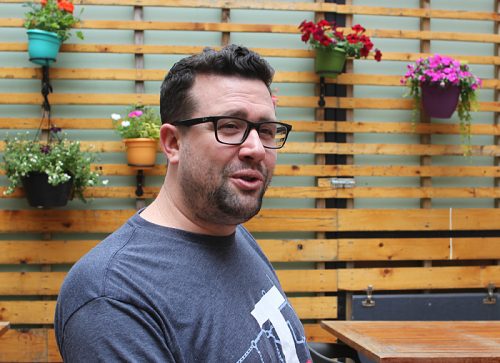
The Bristol
The Bristol was like, holy shit man, boot camp and a half. It was, no prep cooks, it was, four cooks, Pandel worked the line on a daily basis with us, expedited the line on a daily basis with us, and we just cranked, man.
It was very intricate food, but plated not so. Rustically plated, it wasn’t tweezer food. The chicken wings that we opened the restaurant with took seven days to make. Are you nuts, dude? Because they were boneless stuffed chicken wings, but we would make every aspect of the product.
It was a nose to tail restaurant, so we did a lot of charcuterie, a lot of pickling, preserving, anything we could possibly get our hands on. It was very meat-centric, pork-centric, and they had one pasta on the menu when we opened, the raviolo. And every single day, whoever worked that station was in the shits, because you’re making raviolos, and you have to make every part of it with no prep cooks. Dough, farce, crack the eggs, roll the doughs, we’d make thirty of them a night, we’d sell out pretty much every night. And so every single day, you knew you were making 30 of those things.
We didn’t have a pasta cooker, we didn’t have nice equipment at all. We worked with what we had—all I remember is having a fryer with three pots of water, and within six months or a year, we’re running six pastas that are handmade out of this contraption, right next to a fryer where it’s like death if this thing goes in there.
But that’s where it kind of took off for me. Chris pushed me on a daily basis, every single day. He would always come up and say, “Hey man, I know you’ve got four pastas on your menu, plus three other items, do you want to run another pasta?” And it’d be like 2:00 in the afternoon, and in my head I’m like, “I’m going to kill you.” But you’re not going to say no, it was always yes, so we would just have to figure out how to get it done. We had no extruders, we just had to figure out how to do it. It was brutal, but that trained us how to go, and run, and make the best of the bullshit you’re handed. That carried over to working for Chris at Balena, because he said, you want to just make crazy amounts of pasta?
We worked with farms hand in hand, and that was the first time we got to really get involved with farms like Klug Farms, and Spence Farm. We would get a whole animal in every week, and the menu would be driven around that animal. We did a 230-pound pig a week, and every once in a while we did a goat or a lamb. All fish was whole, everything was broken down by ourselves, because that’s the cheapest way to get it.
It kind of wasn’t sustainable. We didn’t take reservations, and people would come and we’d tell them it was a four hour wait, and they’d say fine. So they’d go and drink for four hours and come back hammered. And by that point everything on the menu would be 86’d except salad. So we had to get enough of the prime cuts to feed all these people, and that created the problem, we had all these hams left over and stuff like that. Even being nose to tail, we had a constant struggle with waste. Nose to tail made the restaurant cost-effective, but it also taught us, Chris also taught us, how to turn trash into, honestly, some of the best food I’ve ever had in my life.
Perennial Virant
Even though The Bristol was marketed as “new American,” it was one of the most French-Italian restaurants I’d ever seen. With Paul Virant, his food is not—if you look at it from the outside, you wouldn’t think it, but he’s one of the most Italian-cooking individuals. Everything that dude does is in season, around him, what’s available, that’s such an Italian mindset of how to cook. Simplicity, there’s three things on a plate.
He taught me really how to treat people, manage people better. That was a great thing and he just does a phenomenal job of it—you see the tenure that people work for him, forever. The same guys who were cooking for him in 2008 are still there. That’s a testament to how somebody manages their kitchens, [it shows] somebody you want to work for.
But also the pickling, preserving, jams—every single part of that, we want to do that here as well. We’re working on getting a fermentation program here, with one of my friends who worked for us at Balena. She came over from Pipeworks Brewery, and once we get our HACCP certification, we want to take all the things that go into trash and turn them into vinegars, kombuchas, you name it, and put that kind of stuff on tap.
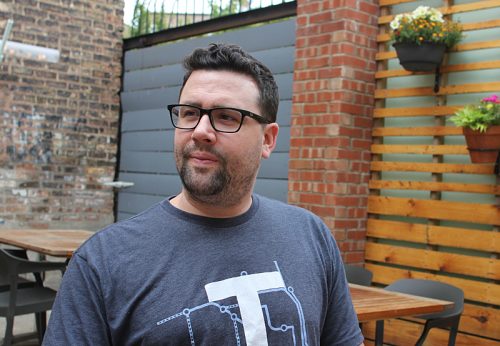
One Afternoon at The Shed, Healdsburg, California
Chris was judging the S. Pellegrino Young Chefs Competition, and we took off and just started driving in Napa. And we ended up at The Shed in Healdsburg, and we said, we’ve heard about this place, let’s check it out. So we sat down at the fermentation bar, which they still claim is the only one in the country, they have a farm that’s attached to this place, it’s a banquet hall—the food was phenomenal. Every single thing these guys were pulling off their taps, kefir waters and sipping vinegars and kombuchas—I was just blown away. I was like, this is one of the coolest things I have ever seen in my life.
Drank it, ate it, and I took the inspiration away from them to do that in the midwest. We just happened to be sitting next to the owner—of course, he just happened to be sitting at the bar—he actually was from the Chicagoland area, originally. We just started talking, forever, and it was one of these things where, it totally shifted my mindset of what you can do with a farm, fermentation, and a program that’s dedicated to food and beverage.
Daisies
It was a rough two years after Balena, I took a couple of years off, I just got married, I wanted to hang out with my wife. Older brother diagnosed with cancer, he’s fine now but he’s going to live with it the rest of his life. I wanted to make sure we had time to hang out together. It was like, dude, there are more important things than food.
I wanted to open a barbecue restaurant. But then I was thinking, you know what? The environmental impacts of all that, I didn’t want to actually profit off it. (I still eat it, though.) But I really wanted to get back into, food that I wanted to do. That I might not have had the free rein to do.
I wanted a restaurant the size of, or a little bit bigger than The Bristol. I missed that connection with the diner. And moreso, having a connection with your employee. We have two cooks. At Balena, we had 50. I had a staff that, in the morning, shifted over, it was 14 cooks in the nighttime, there were prep cooks in the daytime—you do your best to be part of that, to get involved, but I wanted to open a place where, the same people are here all day. I want to create opportunities for them, I want us to have a good time, because this industry sucks [laughs].
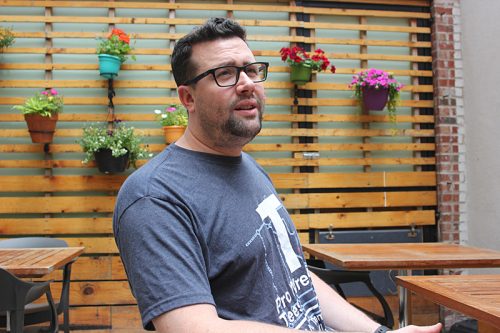
So what I would like to see out of this place, 10 or 12 starters that are primarily out of what we can get from the local farms—my brother’s farm, Green Acres, we use Klug a lot because my brother doesn’t grow any fruit. But having [his brother’s] 8-acre garden, that’s going to inspire the menu exponentially. We opened the restaurant at an odd time, so it’s going to take time to build that pantry, as we’re going.
Ideally, I’d like to have 10 or 12 pastas on the menu. Right now there’s seven. So we’re building that. Everybody comes in and orders the pasta—which is exactly what I want. It’s like SPQR in San Francisco, or Flour + Water, without the pizza.
I’ve always just wanted to bring the food that I like to eat to this neighborhood. Because I thought there was something missing. We want to be a neighborhood restaurant, first and foremost. We’re not on Open Table for a reason. We’re on Reserve, and what you’ll find in this neighborhood is that most restaurants are on Reserve. The patio’s walk-in only, first come first served. The bar, we don’t take reservations for. From 5 to 6:30 it’s all families. We don’t have a dedicated kids’ menu, but we’ll do whatever your kid wants to eat. And I would rather have them come here and eat vegetables out of a farm that’s sustainably grown 30 miles away, than going into the refrigerator eating fruit snacks or chicken nuggets.
Michael Gebert is the all-day editor of Fooditor.
Latest
Join the Discussion
After you comment, click Post. If you're not already logged in you will be asked to log in or register with Disqus.




